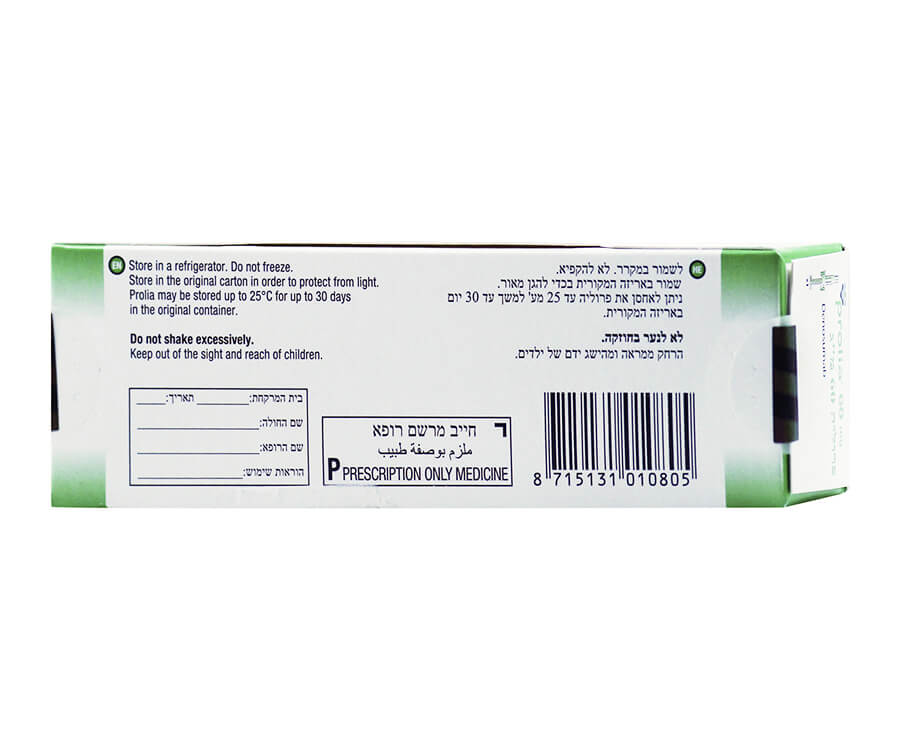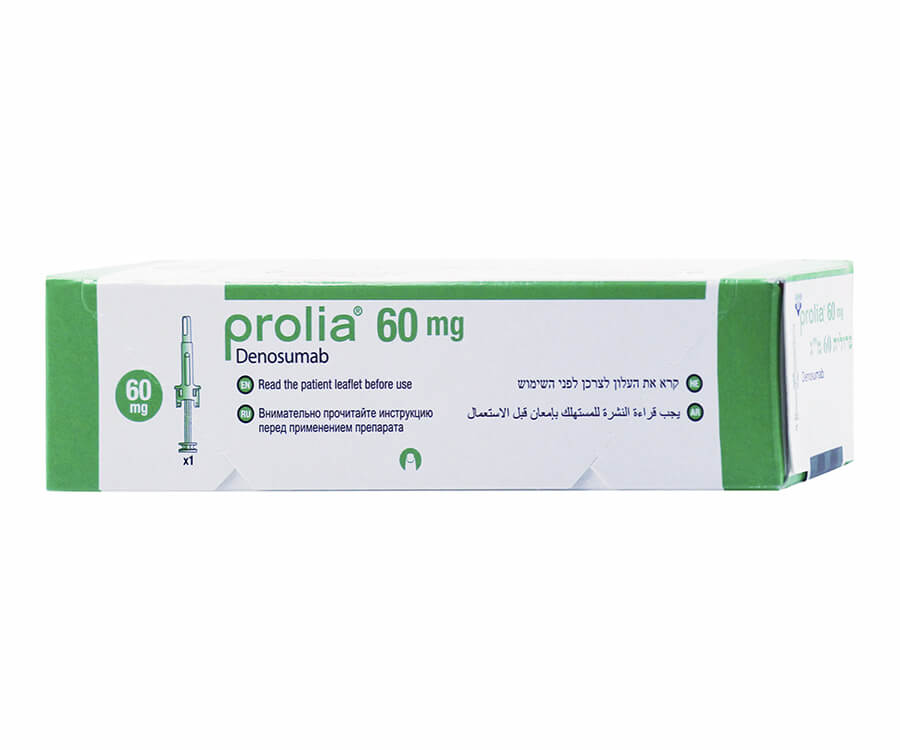Prolia (generic name: denosumab) is a human monoclonal antibody for the prevention of bone loss (osteoporosis) in postmenopausal women and in men who have a reduction in testosterone levels caused by surgery or treatment. It is also prescribed to prevent bone fractures in people with prostate or breast cancer who are undergoing treatment or with bone loss associated with long-term systemic glucocorticoid therapy with prednisone where they are expected to remain on glucocorticoids for at least 3 months.
Caution
Women of childbearing age should use a barrier method of contraception while being treated with
Prolia and for at least 5 months after stopping treatment. In case you become pregnant during treatment with Prolia or within 5 months after stopping treatment, please inform your doctor
Dosage
Prolia is administered by professional healthcare providers. The usual recommended dosage is one dose administered once every 6 months, as a single subcutaneous injection. Please follow the doctor’s instructions and read the information on the manufacturer’s Product leaflet that comes with the medication. Denosumab can carry serious health risks.
This text is for informational purposes only. Please consult your doctor or pharmacist before using any medication.
Possible side effects of Prolia include:
- low calcium levels (especially if you have kidney problems)
- weakness
- constipation
- back pain
- muscle pain
- pain in the arms and legs
- anemia
- diarrhea
- skin problems (eczema, blisters, dry skin, peeling, redness, itching, small bumps)
There may be a greater likelihood of a severe infection, such as skin, ear, stomach/gut, or bladder infection while taking Prolia.
Inform a doctor immediately if there are signs of infection while taking the medication, such as:
- fever/chills, night sweats
- red/swollen/tender/warm skin
- severe stomach or abdominal pain
- ear pain or drainage, trouble hearing
- frequent/painful/burning urination, or pink/bloody urine
- severe itching, burning, rash, blistering, peeling, or dryness of the skin
- cough or shortness of breath
- pinpoint purple or red spots under your skin
- flu symptoms
- weight loss
Not all possible side effects can be listed here. If you experience any of these or other unexpected side effects, consult a healthcare provider immediately.
Prolia is a form of the generic drug denosumab that has been approved for the reduction of the risks of bone fractures in people with:
- Postmenopausal osteoporosis
- Osteoporosis in men treated with surgery or medication for prostate cancer with resulting androgen deprivation
- Bone loss associated with long-term systemic glucocorticoid therapy
- Bone loss in women with breast cancer due to aromatase inhibitor-induced estrogen depletion (low estrogen levels)
Postmenopausal women and men with reduced levels of testosterone have an increased risk of
spinal, non-spinal, and hip fractures.














